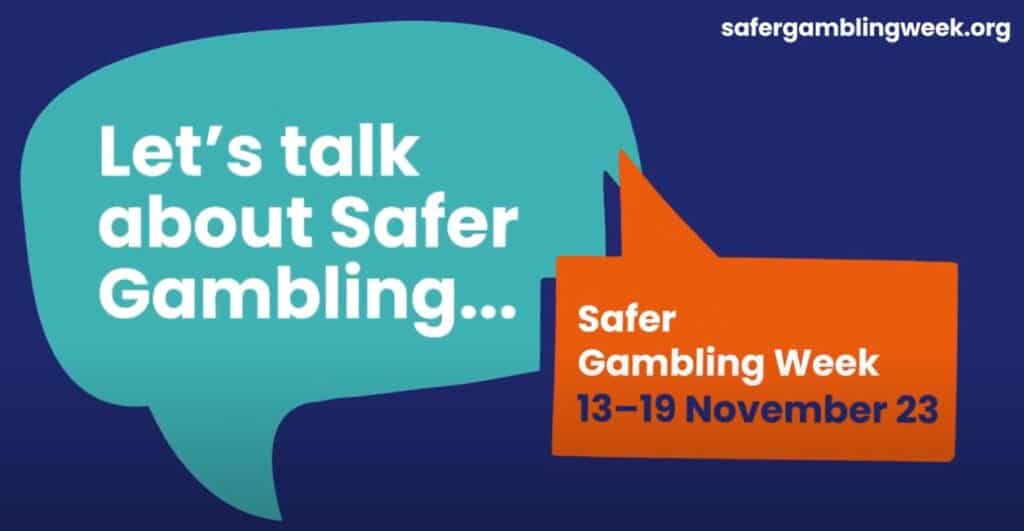Safeguarding the Thrill: The Role of Safe Online Casinos in Promoting Responsible Gaming
In the dynamic landscape of online casinos, the emphasis on safety and responsible gaming has never been more critical. This article explores the commitment of safe online casinos to responsible gaming practices, including their participation in initiatives like Safer Gambling Week and integration with tools like GamStop. Additionally, we’ll delve into the robust security measures that make these platforms safe for players, ensuring the protection of personal information.
Safer Gambling Week and the Role of Safe Online Casinos:
Safe online casinos actively participate in initiatives like Safer Gambling Week, underscoring their commitment to promoting responsible gaming behaviors. This annual event, supported by the industry and various organizations, aims to raise awareness about the importance of gambling responsibly. Participating casinos use this occasion to engage with their player communities, offering resources, information, and support for those who may be at risk of developing gambling-related issues.
One hallmark of a safe online casino is its integration with GamStop, a self-exclusion program that allows players to voluntarily exclude themselves from all licensed online gambling activities. This tool empowers players to take control of their gambling habits and seek help if needed. Safe casinos actively encourage and facilitate the use of GamStop, demonstrating their dedication to player well-being.
Top-Notch Safer Gaming Tools:
Safe online casinos go beyond the basics, offering a range of cutting-edge safer gaming tools to protect players against problem gambling.
These tools may include:
Deposit Limits:
Players can set daily, weekly, or monthly deposit limits, ensuring they stay within their budget and preventing excessive spending.
Session Time Reminders:
Casinos provide reminders to players about the duration of their gaming sessions, promoting breaks and responsible play.
Reality Checks:
Periodic reality checks notify players about their gaming activity, allowing them to reflect on their experience and make informed decisions.
Self-Exclusion Options:
In addition to GamStop, safe online casinos may offer their self-exclusion programs, allowing players to take a break from gambling when needed.
Ensuring Online Security and Protecting Personal Information:
Safe online casinos prioritize the security of their players’ information through various measures:
SSL Encryption:
Utilizing Secure Socket Layer (SSL) encryption ensures that all communication between players and the casino is securely encrypted, protecting personal and financial data from unauthorized access.
Data Protection Policies:
Transparent data protection policies outline how the casino collects, uses, and stores personal information. Safe casinos are committed to handling player data responsibly.
Secure Payment Methods:
Implementing secure and trusted payment methods adds an extra layer of protection for financial transactions, safeguarding players against payment fraud.
Regular Audits and Certifications:
Safe online casinos often undergo regular audits by independent third-party organizations to ensure the fairness of their games and the security of their platforms. Certifications from bodies like eCOGRA signify a commitment to high standards.
Safe online casinos serve as pioneers in responsible gaming, actively participating in initiatives like Safer Gambling Week and providing top-notch tools to protect players. Their dedication to online security, use of personal information, and integration with programs like GamStop collectively contribute to an environment where players can enjoy the thrill of online gaming responsibly and securely. Choosing a safe online casino is not just about entertainment; it’s a commitment to a gaming experience founded on trust, responsibility, and player well-being.
More About Poker:

Safe Online Casinos

Guides: How Imitation of Original Casino Games Maybe Similar On Face Value But How Do They Stack Up Behind the Scenes?

Guides: Online Casinos ISO 9001 Quality Management Systems

Safer Gaming: Why ISO 17025 Testing of Gaming Software and Equipment Matters to You?

Guides: ISO 27018 Online Casino Protection of Personally Identifiable Information

Guides: ISO 26000: What It Means for Online Casino Players
Frequently Asked Questions (FAQs) - Seeking Help for Problem Gambling
1: How can I recognize if I or someone I know has a gambling problem?
Signs of a gambling problem may include an inability to control or stop gambling, spending more time and money on gambling than intended, neglecting responsibilities, and experiencing relationship or financial difficulties. If these signs resonate, seeking help is crucial.
2: Where can I seek help for a gambling problem?
Several resources are available for individuals seeking help for problem gambling. Contacting organizations such as Gamblers Anonymous, the National Council on Problem Gambling (NCPG), or utilizing self-exclusion programs like GamStop can be valuable first steps.
3: What is Gamblers Anonymous, and how can it help?
Gamblers Anonymous is a support group for individuals struggling with a gambling problem. Meetings provide a platform for sharing experiences, gaining support, and working towards recovery. Visit their website or attend local meetings to connect with others facing similar challenges.
4: What is GamStop, and how does it assist in controlling gambling habits?
GamStop is a self-exclusion program allowing individuals to voluntarily exclude themselves from all licensed online gambling activities in the UK. Registering with GamStop is a proactive step towards regaining control over gambling habits.
5: When should I seek professional help for a gambling problem?
It’s advisable to seek professional help when gambling begins to adversely impact one’s life, relationships, or finances. If attempts to self-regulate have been unsuccessful, reaching out to a mental health professional, counselor, or addiction specialist is recommended.
6: How can I approach someone I suspect may have a gambling problem?
Expressing concern in a non-judgmental and supportive manner is crucial. Encourage open communication, offer assistance in seeking help, and provide information about available resources. Be patient and understanding, recognizing that acknowledging a gambling problem may be difficult.
7: What role does self-exclusion play in responsible gambling?
Self-exclusion, such as utilizing programs like GamStop, is a proactive measure to prevent access to online gambling platforms. It allows individuals to take control of their gambling habits by restricting their own access.
8: Are there signs that suggest it’s time to seek professional help?
Signs indicating the need for professional help include persistent inability to control gambling, continued gambling despite negative consequences, and escalating financial or emotional distress. If these signs are present, consulting with a mental health professional specializing in addiction is advised.
9: Can problem gambling be treated successfully?
Yes, problem gambling is treatable, and many individuals have successfully overcome it with the right support. Treatment approaches may include counseling, therapy, support groups, and lifestyle changes. The key is early recognition and a commitment to seeking help.
10: Where can I find more information about responsible gambling and seeking help?
The National Council on Problem Gambling (NCPG) and other reputable organizations offer comprehensive information on responsible gambling and resources for seeking help. Websites of relevant authorities, such as your country’s gambling commission, may also provide valuable information.





